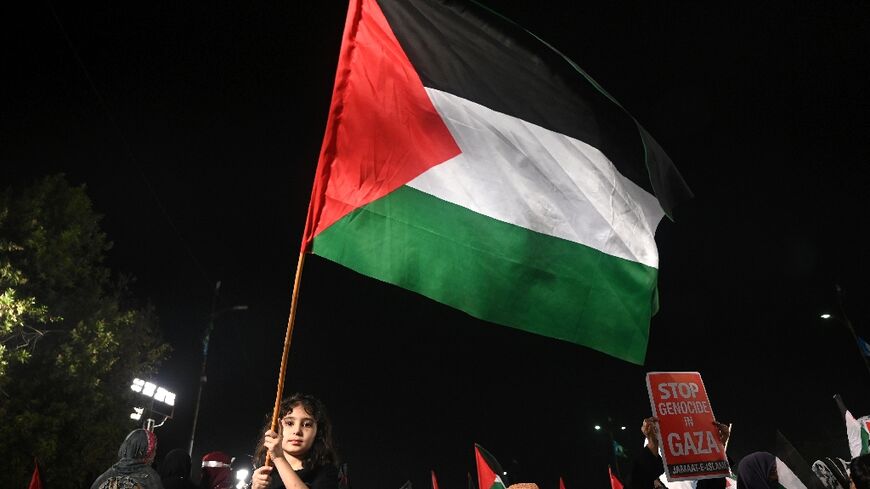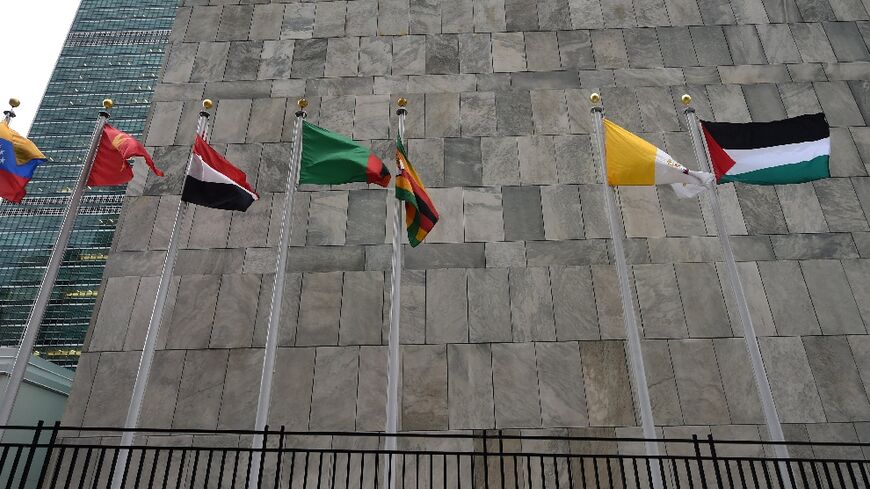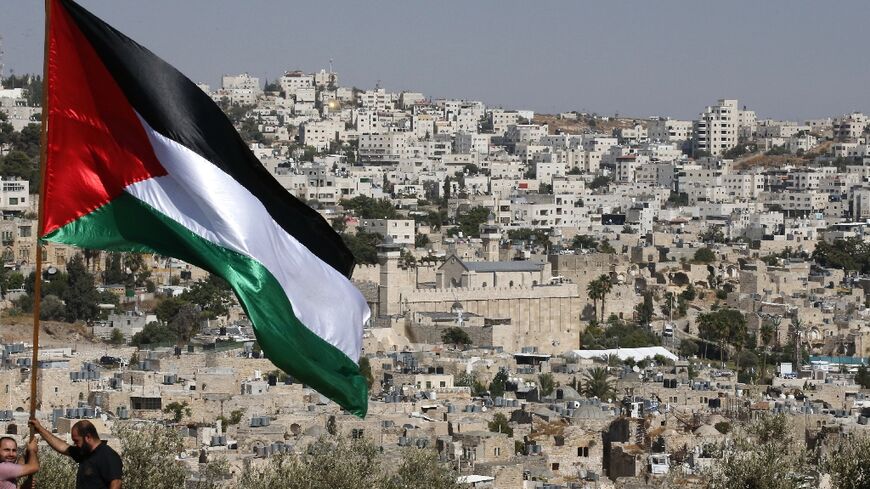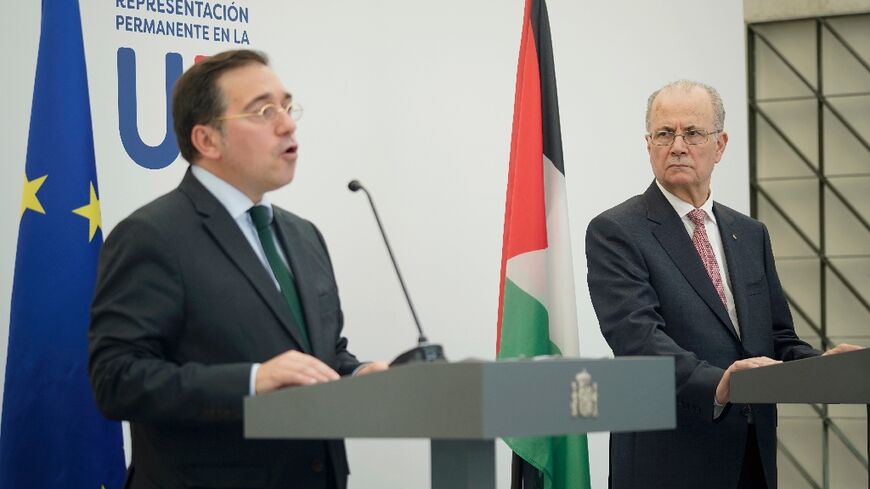146 countries now recognise a Palestinian state
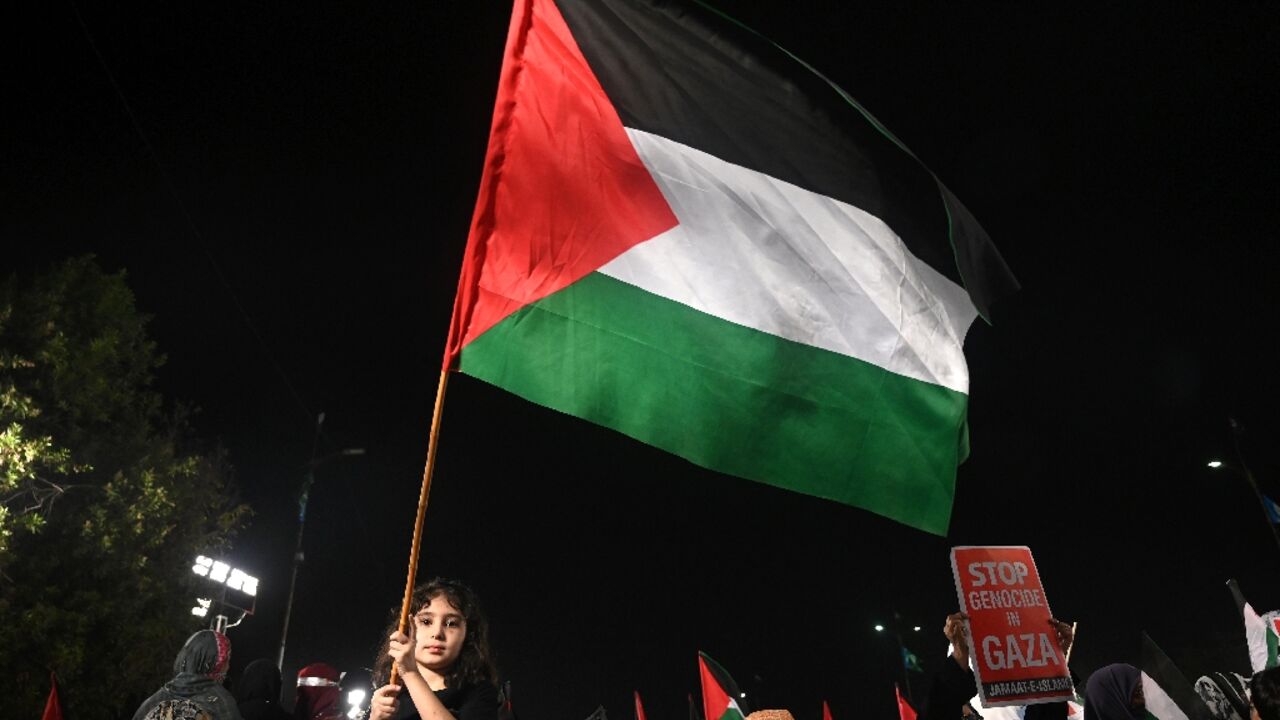
The Israel-Hamas war, raging in Gaza since the Palestinian militant group's October 7 attack, has revived a global push for Palestinians to be given a state of their own.
Slovenia on Tuesday became the latest country to recognise a state of Palestine, breaking with the long-held view of Western powers that Palestinians can only gain statehood as part of a negotiated peace with Israel.
This follows the same move made last week by Spain, Ireland and Norway.
Their action, which has infuriated Israel, means that 146 out of the 193 UN member states now recognise a Palestinian state.
They include most Middle Eastern, African, Latin American and Asian countries, but not the United States, Canada, the majority of western Europe, Australia, Japan or South Korea.
In April, the United States used its veto at the UN Security Council to prevent a Palestinian bid to become a full UN member state.
Here is a quick recap of the Palestinians' quest for statehood:
- 1988: Arafat proclaims state -
On November 15, 1988, during the first Palestinian intifada, or uprising, Palestinian leader Yasser Arafat unilaterally proclaimed an independent Palestinian state with Jerusalem as its capital.
He made the announcement in Algiers, at a meeting of the exiled Palestinian National Council, which adopted the two-state solution as a goal, with independent Israeli and Palestinian states existing side-by-side.
Minutes later, Algeria became the first country to officially recognise an independent Palestinian state.
Within weeks, dozens of other countries, including much of the Arab world, India, Turkey, most of Africa and several central and eastern European countries followed suit.
The next wave of recognitions came in late 2010 and early 2011, at a time of crisis for the Middle East peace process.
South American countries including Argentina, Brazil and Chile answered calls by the Palestinians to endorse their statehood claims.
This came in response to Israel's decision to end a temporary ban on Jewish settlement building in the occupied West Bank.
- 2011-2012: UN recognition -
In 2011, with peace talks at a standstill, the Palestinians pushed ahead with a campaign for full UN membership for a state of Palestine.
The quest failed but, in a groundbreaking move on October 31 of that year, the UN cultural agency UNESCO voted to accept the Palestinians as a full member. In response, Israel and the United States suspended their funding of the body. They quit UNESCO outright in 2018, although the United States rejoined last year.
In November 2012, the Palestinian flag was raised for the first time at the United Nations in New York after the General Assembly overwhelmingly voted to upgrade the status of the Palestinians to "non-member observer state".
Three years later, the International Criminal Court also accepted Palestine as a state party.
- 2014: Sweden first in western Europe -
In 2014, Sweden, which has a large Palestinian community, became the first EU member in western Europe to recognise a Palestinian state.
The move followed months of almost daily clashes in Israeli-annexed east Jerusalem.
A state of Palestine had earlier been recognised by six other European countries -- Bulgaria, Cyprus, the Czech Republic, Hungary, Poland and Romania.
Israel reacted angrily to Stockholm's move, with then foreign minister Avigdor Lieberman telling the Swedes that "relations in the Middle East are a lot more complex than the self-assembly furniture of IKEA".
- 2024: New push in Europe -
Israel's relentless offensive in Gaza, which has left at least 36,586 people dead, according to the health ministry in the Hamas-run territory, according to an AFP tally based on Israeli official figures, has boosted support in Europe for Palestinian statehood.
Israel launched its bombardment and ground offensive in Gaza with the aim of destroying Hamas, after the militant group's surprise attack on October 7 which resulted in the deaths of 1,194 people, mostly civilians, according to an AFP tally based on Israeli official figures.
Militants also took 251 hostages, 120 of whom remain in Gaza, including 41 the army says are dead.
After months of warnings, Norway, Spain and Ireland last week finally took the step, with Spanish Prime Minister Pedro Sanchez describing it as a matter of "historic justice."
After Slovenia's vote on Tuesday, Prime Minister Robert Golob wrote on the government's account on social media site X that the recognition "sends hope to the Palestinian people".
Malta and Australia have also floated the possibility of endorsing Palestinian statehood.
President Emmanuel Macron has said he would be prepared to recognise a Palestinian state, but such a move should "come at a useful moment" and not be based on "emotion".
